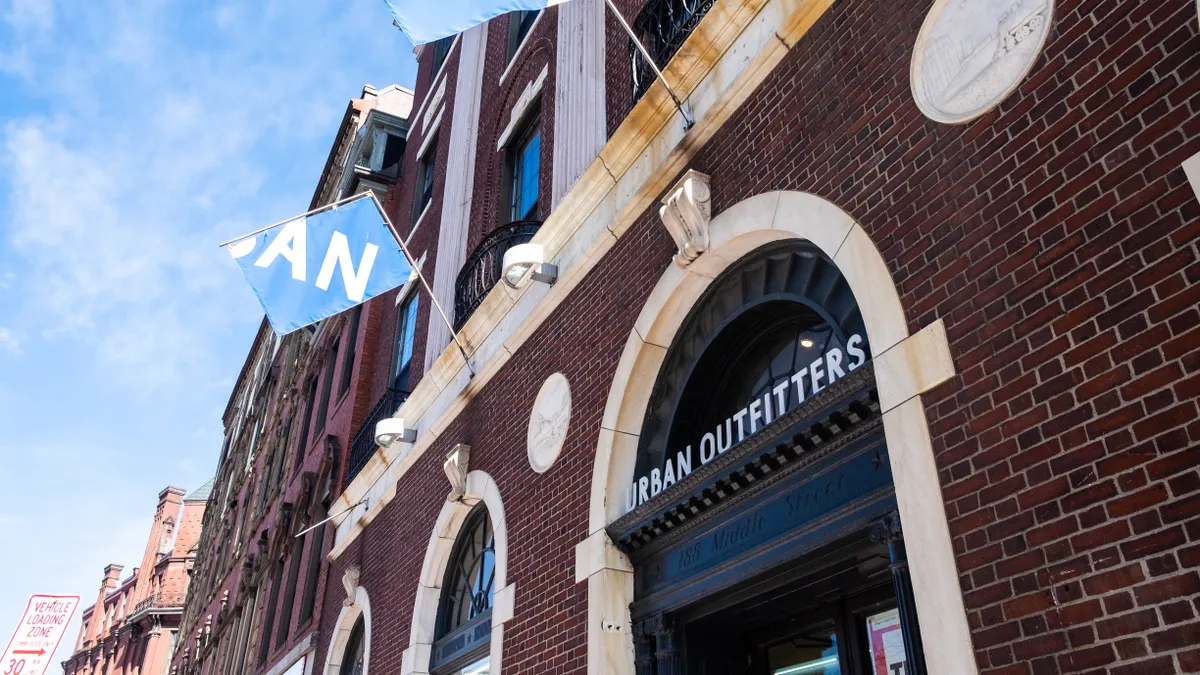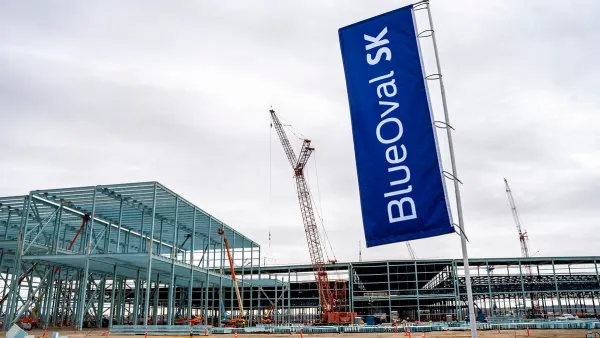Dive Brief:
- Urban Outfitters is pulling forward orders and buying more raw fabrics to lock in non-inflationary prices and protect against supply chain backlogs, executives said in a Q3 earnings call.
- The apparel company moved up its orders of its candles, holiday decor and other home products to adapt to longer lead times and increased costs due to a volatile shipping container market and other issues, according to COO Frank Conforti.
- "Over the last six, seven years, we have consistently talked about keeping our inventory as lean as possible," Conforti told investors on the call. "Right now, we don't have the choice of doing that because the supply chain is anywhere from four to six weeks longer than it was two years ago."
Dive Insight:
After struggling with inventory delays and rising inflation, Urban Outfitters is rethinking its inventory strategy, Conforti said.
Production and transportation delays have prompted the company to prioritize its most popular apparel items and lock in raw materials prices ahead of time.
"We're going in and buying more fabric and getting better prices, doing it earlier," he said on the call.
Longer lead times also have the company focusing more on home products to minimize the risk that certain styles could go out of fashion by the time the products arrive from overseas, CFO Melanie Marein-Efron said.
"We believe these factors may elevate our inventory position at the end of the fourth quarter versus two years ago," she said.
Larger retailers are rethinking their inventory strategies, too. Lowe's also placed larger orders ahead of the holidays as the company confronted what its CFO compared to "hand-to-hand combat" in product availability. Macy’s has put renewed emphasis on data and analytics, not just to speed shipments, but also to improve inventory forecasting and packaging consolidation.
At American Eagle, greater inventory control helped cut delivery times and the average cost per shipment from the previous year, COO Michael Rempell said on an earnings call. The company this month announced its purchase of Quiet Logistics to tighten its grip on its supply chain.
Placing larger inventory orders to mitigate supply chain disruptions can backfire. Tupperware bulked up its inventory levels only to idle factories after lower-than-expected demand left the company saddled with too much product.















